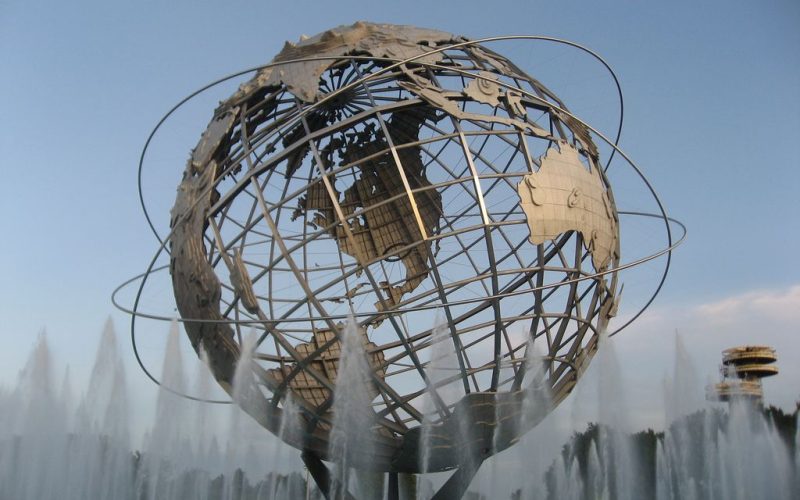Introduction
Globalization, the process of increased interconnectedness and interdependence among countries, has touched nearly every aspect of human life. One of the most significant areas affected by globalization is entertainment. From movies and television shows to music and video games, the entertainment industry has undergone a profound transformation due to the forces of globalization. This article aims to explore the multifaceted impact of globalization on entertainment content, focusing on how it has changed production, distribution, cultural exchange, and audience reception.
Historical Context

-
Pre-Globalization Era
Before the advent of globalization, entertainment content was largely localized. Each country or region had its own unique forms of entertainment, deeply rooted in local culture, traditions, and languages. The distribution of entertainment content was limited by geographical boundaries, and international exposure was minimal.
-
The Rise of Globalization
The late 20th and early 21st centuries saw the rise of globalization, driven by advancements in technology, communication, and transportation. The internet, satellite TV, and digital media platforms have played pivotal roles in breaking down barriers and facilitating the global flow of entertainment content.
Changes in Production
-
Cross-Border Collaborations
Globalization has led to an increase in cross-border collaborations in the entertainment industry. Filmmakers, musicians, and game developers from different countries now frequently work together, bringing diverse perspectives and expertise to their projects. This has resulted in richer and more varied content that appeals to a global audience.
-
Outsourcing and Offshoring
The globalization of entertainment has also led to outsourcing and offshoring of production tasks. Countries with lower production costs, such as India and the Philippines, have become hubs for animation, visual effects, and post-production services. This has allowed entertainment companies to reduce costs while maintaining high-quality output.
Changes in Distribution

-
Digital Platforms
One of the most significant impacts of globalization on entertainment content is the rise of digital platforms. Streaming services like Netflix, Amazon Prime, and Spotify have made it possible for audiences worldwide to access a vast array of entertainment content from different countries. This has democratized access to entertainment and allowed for the rapid dissemination of content across borders.
-
Global Box Office
The globalization of entertainment has also transformed the box office landscape. Hollywood, for instance, now relies heavily on international markets for revenue. Blockbuster movies are often designed with a global audience in mind, incorporating elements that appeal to diverse cultural tastes.
Cultural Exchange
-
Hybrid Genres
Globalization has led to the creation of hybrid genres that blend elements from different cultures. For example, K-pop, a genre of popular music originating from South Korea, incorporates Western musical styles and production techniques while retaining its unique Korean identity. Similarly, Bollywood films often blend Indian and Western cinematic elements, creating a unique fusion that appeals to both local and international audiences.
-
Cultural Representation
The increased flow of entertainment content across borders has also led to greater cultural representation. Audiences are now exposed to a wider range of cultural narratives and perspectives, fostering greater understanding and appreciation of different cultures. However, this has also raised concerns about cultural appropriation and the potential loss of cultural identity.
Audience Reception

-
Diverse Audiences
Globalization has created more diverse and discerning audiences. Viewers and listeners now have access to a plethora of entertainment options from around the world, making them more selective and demanding. This has pushed content creators to innovate and produce high-quality content that can stand out in a crowded marketplace.
-
Fan Communities
The internet has enabled the formation of global fan communities, where people from different parts of the world come together to share their love for specific entertainment content. These communities play a crucial role in promoting and sustaining the popularity of entertainment content, often influencing production decisions and marketing strategies.
Challenges and Concerns

-
Cultural Homogenization
One of the major concerns associated with the globalization of entertainment is cultural homogenization. The dominance of Western entertainment content, particularly from Hollywood, has led to fears that local cultures and traditions may be overshadowed or lost. This has sparked debates about the need to preserve cultural diversity in the face of globalization.
-
Intellectual Property
The global distribution of entertainment content has also raised issues related to intellectual property rights. Piracy remains a significant challenge, with unauthorized distribution of content leading to substantial revenue losses for creators and producers.
Conclusion
The impact of globalization on entertainment content is profound and multifaceted. While it has led to greater diversity, innovation, and accessibility, it has also raised important questions about cultural preservation and intellectual property. As the world becomes increasingly interconnected, the entertainment industry will continue to evolve, reflecting the dynamic interplay between global and local influences. Understanding these changes is crucial for creators, producers, and audiences alike, as they navigate the complexities of a globalized entertainment landscape.










